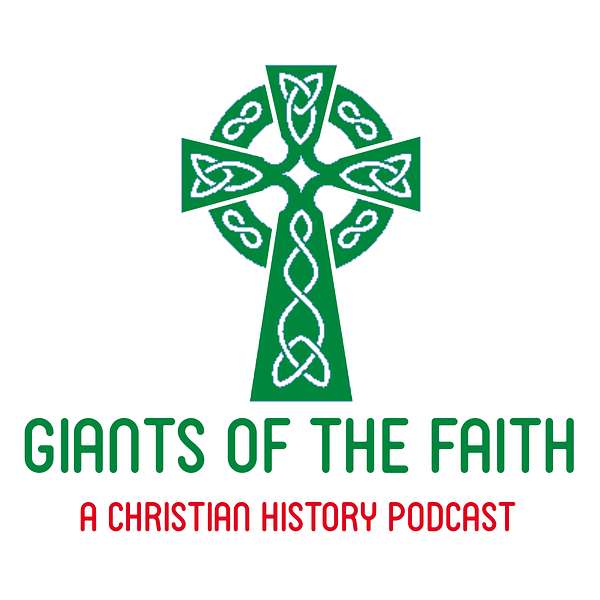
Giants of the Faith - A Christian History Podcast
Giants of the Faith - A Christian History Podcast
Episode 72 - John Mason Neale (Christmas 2023)
Today, we will focus on the life and work of John Mason Neale, an Anglican priest, scholar, and hymnwriter who translated and adapted many ancient and medieval hymns into English. My initial thought was to relegate Neale to a bonus episode hitched to Episode 71 and Wenceslaus. But when I saw that he was also responsible for the popular English translations of "Good Christian Men, Rejoice" and "O Come, O Come, Emmanuel" I had to give him the full episode treatment. Those two songs, along with "Good King Wenceslas" are some of my favorite classic Christmas songs so I really enjoyed learning about Neale.
RESOURCES
Hymnology Archive. https://www.hymnologyarchive.com/john-mason-neale.
The Feast Days: https://thefeastdays.com/0807
Welcome to the Giants of the Faith Podcast, where we explore the stories behind some of the great figures in Christian history. This is episode 72. Today, we will focus on the life and work of John Mason Neale, an Anglican priest, scholar, and hymnwriter who translated and adapted many ancient and medieval hymns into English.
My initial thought was to relegate Neale to a bonus episode hitched to Episode 71 and Wenceslaus. But when I saw that he was also responsible for the popular English translations of "Good Christian Men, Rejoice" and "O Come, O Come, Emmanuel" I had to give him the full episode treatment. Those two songs, along with "Good King Wenceslas" are some of my favorite classic Christmas songs so I really enjoyed learning about Neale.
John Mason Neale was born in London on January 24, 1818, into a family of clergymen and scholars. His mother was a descendant of John Mason, a Puritan hymnwriter and preacher. Neale showed an early interest in languages, literature, and music, and was educated at Sherborne School and Trinity College, Cambridge. He graduated with a degree in classics, but was unable to obtain an honors degree due to his poor performance in mathematics.
At Cambridge, Neale was influenced by the Oxford Movement, a revival of Catholic traditions and doctrines within the Church of England. He helped to found the Cambridge Camden Society, later known as the Ecclesiological Society, which promoted the study and restoration of church architecture and liturgy. He also became interested in the history and theology of the Eastern Orthodox Church, and wrote a four-volume work titled A History of the Holy Eastern Church, which was published between 1847 and 1855.
Neale was ordained as an Anglican priest in 1842, and served briefly as the incumbent of Crawley, a small parish in Sussex. However, he soon had to resign due to his poor health, suffering from a chronic lung disease that plagued him for the rest of his life. He spent the winter of 1842-1843 in Madeira, a Portuguese island in the Atlantic Ocean famous for its wine, where he recovered and did research for his History of the Eastern Church.
In 1846, Neale was appointed as the warden of Sackville College, an almshouse for the poor and elderly in East Grinstead, Sussex. I could find no info to confirm or deny the presence of a certain hobbit family at Sackville College, but if they were there I am sure that Neale ministered to them. He remained in this position until his death. He also married Sarah Norman Webster in 1848, and they had six children.
Neale's most lasting contribution to the church was his hymnody. He translated and adapted many ancient and medieval hymns from Greek, Latin, and Syriac sources, and introduced them to the English-speaking world. He also wrote original hymns and poems, often based on historical or legendary themes. Some of his most famous hymns include "O Come, O Come, Emmanuel", "Of the Father's Love Begotten", "All Glory, Laud, and Honor", "Good Christian Men, Rejoice", and "Good King Wenceslas".
Neale's hymns were not always well received by his contemporaries, who considered them too Catholic or too obscure. He also faced opposition and persecution for his Anglo-Catholic views and practices, such as his advocacy for religious orders, ritualism, and ecumenism. Many thought he was an agent of the Vatican come to undermine the Church of England. He was attacked by a mob at a funeral of one of the sisters of the Society of Saint Margaret, an order of Anglican nuns dedicated to nursing the sick that he co-founded in 1854. He was also denied any honor or preferment, i.e. income, in the Church of England, and had to rely on the support of his friends and admirers.
Neale died on August 6, 1866, at the age of 48, after a long and painful illness. He was buried in the churchyard of St. Swithun's, East Grinstead, where a memorial stone was erected by his widow. He was also commemorated by a stained glass window in the chapel of Sackville College, and by a plaque in the antechapel of Trinity College, Cambridge. He is venerated as a saint in the Anglican Communion, and his feast day is celebrated on August 7.
Neale's hymns have endured the test of time, and have enriched the worship and devotion of generations of Christians. His hymns have been translated into many languages, and have been sung by various denominations and traditions. His hymns have also inspired many composers and musicians, such as Ralph Vaughan Williams, Gustav Holst, Benjamin Britten, and John Rutter.
For his contribution to Christmas hymnody alone he's a Giant of the Faith in my book. I'm grateful to be able to sing and enjoy his work even all these years later. I hope you do, too. Thanks very much for listening. Until next time, God bless!
RESOURCES
Hymnology Archive. https://www.hymnologyarchive.com/john-mason-neale.
The Feast Days: https://thefeastdays.com/0807